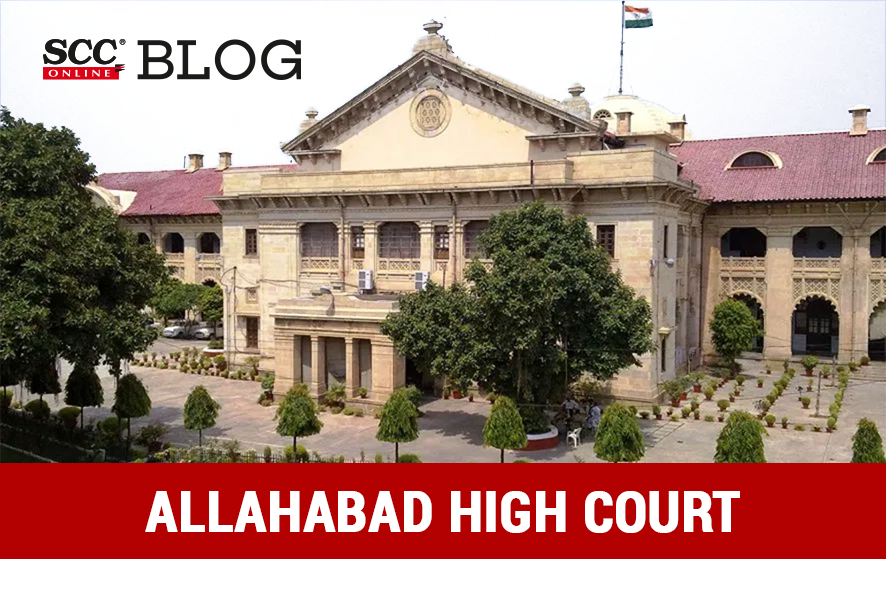Allahabad High Court: In a case wherein an appeal was filed under Section 374(2) of Code of Criminal procedure, 1973 against the judgment passed by special judge (MP/MLA/Additional Sessions), wherein the Trial Court has convicted and sentenced the convicts the Single Judge bench of Dinesh Kumar Singh J. set aside the appeal on the ground that technical objections taken at the stage of appeal has no relevance, objection should positively be raised at trial stage.
Factual Matrix
In the case at hand, the convicts have forged their mark-sheets and took admission in B.Sc Part – II, B.Sc Part -III, LLB Part – II respectively. However, show cause notice were issued by the Principle but they never replied to the notice. On that Principle consequently requested the police to implead against these convicts, who had taken admission based on forged and fabricated mark-sheets/documents and played fraud with college administration and the University.
Further, Senior Superintendent of Police directs Station House Officer to register and investigate the offence. In pursuance to the said direction, Investigating Officer filed the charge sheet against convicts under Section 468, 471 and 420 of the Penal Code 1860. After taking the cognizance, convicts denied the charges and claimed trial.
The prosecution to prove its case, examined Office Superintendent of the College and Senior Assistant. They collectively verified the certified copy of the paper and also concrete the signature of the Principle. Therefore, alleged that all the convicts had taken admission based on forged mark sheets.
Contentions
The convicts Contended that as per Section 154 of Cr.P.C., FIR related to offences committed should be in same course of the transaction and as per Sections 221 and 223 of Cr.P.C. for every distinct offence there shall be a separate charge & for every such charge there shall be separate trial. In this matter there was no allegation of criminal conspiracy and abetment among the convicts. They are three different individuals with different perception. Perhaps, convicts were tried jointly which vitiated the procedure.
It was alleged that only photocopies of the mark-sheets forged by the convicts were produced before the Trial Court. The Trial Court had convicted the convicts on the basis of the secondary evidence which vitiated the entire trial proceedings of Section 65 of the Evidence Act, 1872
Respondent Contended that convicts had never taken objection or denied regarding the admissibility and existence of the documentary evidence. It is further contended that the convicts have also not taken any objection in respect of their trial together or lodging of one FIR or framing of common charge for the offence. Hence, it is not open for them to take this objection at this stage of the appeal.
It was further submitted that convict-1 and convict- 3 is a Mafia, gangster and dreaded criminal and his character is also important while deciding the appeal.
Analysis
Placing reliance on Muddasani Venkata Narasaiah v. Muddasani Sarojana, (2016) 12 SCC 288, the Court said that witnesses have proved the forged mark-sheets and admission forms of the convict, on the basis of which they had taken admission. The evidence of the prosecution witnesses had gone un-rebutted and, Court finds that their testimony was cogent and credible to bring home the charge against convicts.
The Court further relied upon P.C. Purushotham Reddiar v. V.S. Perumal, (1972) 1 SCC 9 and said that when they had not taken any objection with respect to the admissibility of the documents during trial and the documents were proved by the witnesses, at this stage it is not open for them to take such objection in the appeal.
The Court noted that the document in terms of Section 65 of the Indian Evidence Act is to be proved by a person, who is acquainted with the hand writing of the author thereof the witnesses have proved the documents and they were acquainted with the hand writing and signatures of the then Principal and the Sub-Inspector
The Court held that convicts are not in a position to say that they were prejudiced in any manner by common FIR, one charge sheet and same charge for all three convicts and one trial. The allegations are identical. witnesses were common, who had proved the documents and deposed in support of the charge, thus rejected the technical plea for having no substance.
Further, the Court said that evidence lead by the prosecution, the offences under Sections 420, 468 and 471 IPC are fully made out and proved against the convicts and, thus, held that the Trial Court has rightly convicted and sentenced the convicts for the aforesaid offences.
Further, directed that the convicts shall be taken into custody forthwith to serve out the sentence as awarded by the Trial Court
[Indra Pratap Tiwari v State of U.P,2023 SCC OnLine All 86, order dated 16-03-2023]
Advocates who appeared in this case :
Counsel of Appellant: Advocate Dhirendra Kumar Mishra, Advocate Ishan Baghel, Advocate Manoj Kumar Mishra, Advocate Salil Kumar Srivastava;
Advocate Rama Niwas Pathak c;
Advocate Diwakar Singh, Advocate Alka Singh;
Counsel for Respondent: Government Advocates Anuj Pandey, Asok Pande, Sushil Kumar Singh.






